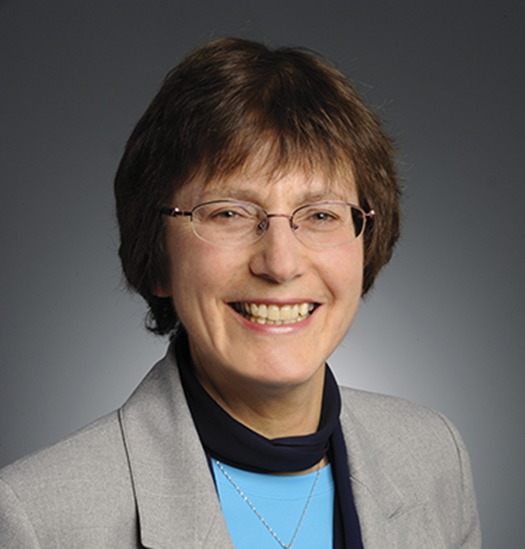
Dear Colleagues,
When making New Year’s resolutions, it is helpful to look at the past to inform our desired future. At the end of 2014, Inese Grava-Gubins took early retirement from the College after a 31-year career as the CFPC’s Director of Research. Inese’s accomplishments are very much aligned with the considerable expansion of the scope of family medicine research and the community of practice that the CFPC has played a role in building over those years.
Inese discovered family medicine research through 2 extraordinary mentors—Drs Jack Medalie and Steve Zyzanski—at Case Western Reserve University in Cleveland, Ohio. Her marriage to “a wonderful Latvian Canadian” brought her to Toronto, Ont. After spotting a newspaper advertisement for the CFPC, she was initially hesitant to apply, but her husband reminded her that all she had to lose was a stamp! Once in the position, she spent time becoming familiar with the CFPC’s interests. She was appalled to discover that one area of research focused on phase 3 clinical trials. Inese quietly but firmly shifted the CFPC focus. She has always understood and appreciated what is at the heart of our discipline and the dimensions of altruism and humility, its focus on the whole person, and the importance of FPs being the first point of contact. Under her guidance, and the leadership of researchers such as Drs Martin Bass, Carol Herbert, and Michel Labrecque, the CFPC National Research Committee morphed into the Section of Researchers (SOR) in May 1995. The SOR has always been Inese’s second baby; her first baby, beloved daughter Brigita, came into the world just a few months earlier. A unique group, the SOR has led the development of research communities of learning and practice. To this day it continues to connect and nurture an ever expanding group of family medicine researchers.
Inese has been a driving force behind numerous other important College milestones in family medicine research.
The National Physician Survey: Started in 1997 as the Janus Project, it was a comprehensive survey of FPs that ultimately expanded to all physicians, medical students, and residents. The concept of going beyond “the numbers game” of how many licensed physicians there are to fully understand scopes of practice and practice intentions in order to improve Canadian health policy and inform health human resource planning remains relevant today.
The Canadian Primary Care Sentinel Surveillance Network (CPCSSN): The idea of connecting FPs to report on emerging illnesses and disease trends noticed in practice first arose in 1976 and eventually led to the CFPC National Research System (NaReS). Sentinel surveillance has since become a promising emerging methodology. Under Inese’s stewardship, along with many other keen researchers, the dream of creating a national network of research networks began to emerge. With the advent of electronic medical records, prevalence of chronic disease, and further leadership from FP researchers, the CFPC became a founding member of CPCSSN, with substantial funding from the Public Health Agency of Canada. Through CPCSSN, networks of FPs using electronic medical records were (as of June 30, 2014) connected in 7 of 10 provinces and the Northwest Territories (588 sentinels with 844 592 patients), proving that robust chronic disease surveillance was possible for “the big 5” chronic conditions (chronic obstructive pulmonary disease, hypertension, diabetes mellitus, osteoarthritis, and depression) and 3 neurologic conditions (Alzheimer disease and other dementia, epilepsy, and Parkinson disease).
Celebration: Inese grasped the importance of “celebrating our own” early on. Over the years, she and the SOR established several awards recognizing outstanding research leaders and their accomplishments, and increasing financial support for family medicine research.
Influence: By increasing awareness of family medicine research through the SOR Kaleidoscope newsletter, advocating at the former National Research Council, and visiting the new Canadian Institutes of Health Research directors to introduce them to family medicine research, Inese, along with other key SOR and family medicine researchers, has helped sustain CFPC’s advocacy efforts.
Global outreach: Through the IDRC-sponsored family medicine research workshop in Singapore in 1989, the WONCA conference in Vancouver in 1992, and her considerable engagement in NAPCRG, Inese has helped sustain global efforts to build capacity in family medicine research. It is no surprise that this past year she was again awarded a NAPCRG President’s Award.
What does life have in store after such a full career? Inese prefers to think of her next phase as rewiring, rather than retiring. She will take a bit of time to relax, but hopes to again contribute directly to family medicine research, which she put aside for her administrative responsibilities. She is also an accomplished soprano and pianist, and she hopes to continue her solo work and chamber choir performances, and to join more than 16 000 singers on stage at a Latvian Song Festival in Riga in 2018, as she did in 2013.
Inese, on behalf of all of us at the CFPC, thank you for your sustained leadership over the past 31 years, and we wish you the very best as you embark on your “rewiring.”
Footnotes
Cet article se trouve aussi en français à la page 95.


